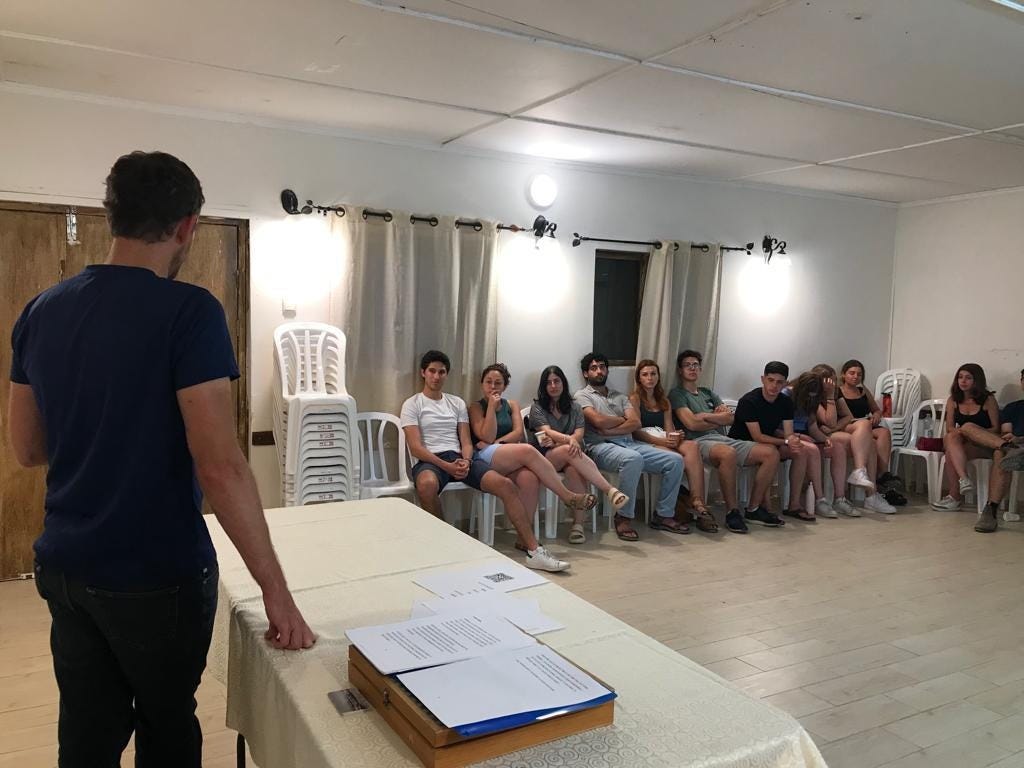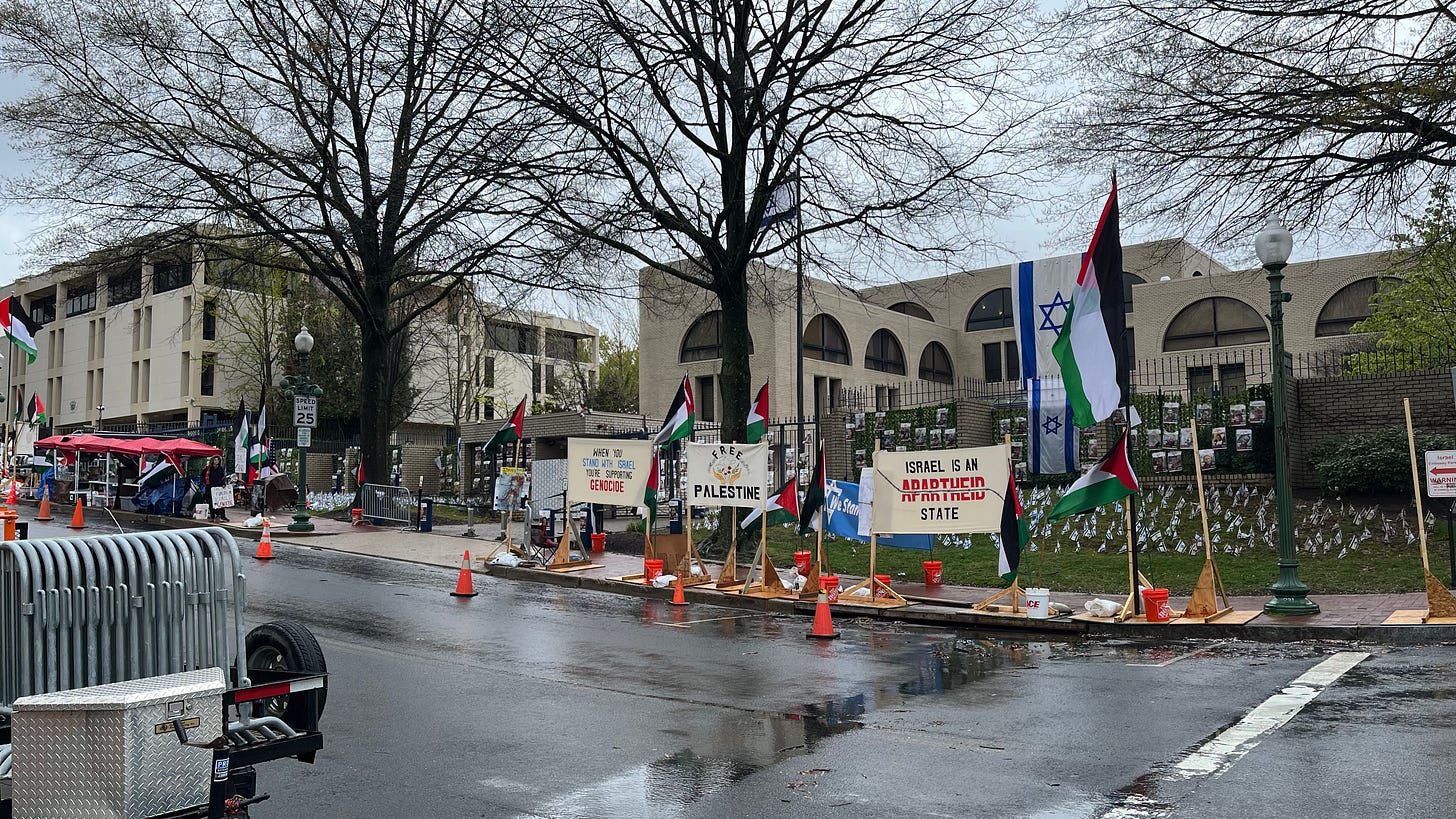Remembering Sarah Milgrim
You never know who you are going to influence in a small way.
In the summer of 2022 I gave a speech to a group of international students in Israel. They were participating in a weekend geopolitical seminar with an organization called Onward Israel. My speech was called “Five Things You Should Know Before Talking to Anyone About Israel.”
I shared my thoughts about why conversations about Israel can be so difficult, especially with people who define themselves as progressives. I explained why it is important to see where people are coming from, assume good intentions until proven otherwise, and focus on basic principles. I offered some suggestions for how to educate others about the Jewish people, Israel, and Zionism. I finished the speech with the feeling that I nailed it. Audience feedback was excellent. My email signup sheet was full.
Two years later, in February 2024, I posted on social media that I was going on a speaking tour in the United States. I received a direct message from a woman named Sarah Milgrim.
“Hi! I met you in summer of 2022 on an Onward geopolitical program. I now work for the Israeli Embassy in Washington, DC, doing outreach with progressive Americans.”
She invited me to come to the Israeli Embassy to speak to the staff. “I think they’d like to hear about your experience working with college-age students.”
It was four months after the October 7 Massacre. I had never been invited to the Israeli Embassy before. My lectures are intended for college students who want to learn about Israel, not Israeli diplomats who already know Israel better than I do. But Sarah remembered my speech, had seen all of my social media posts since the war began, and thought I had something to offer her colleagues who dealt with public diplomacy.
At the end of March, I told Sarah that I would be passing through Washington on my campus speaking tour. We agreed that I would come to the Israeli Embassy on April 1.
I asked Sarah if there were topics I should prepare to discuss. She sent me an email with a list of ideas: my background, social media strategy, the challenges I faced as a reservist in the IDF Spokesperson’s Unit during the early months of the war, Israel education, how to talk to college students, and antisemitism on college campuses. Small topics.
“Everyone knows it will be very informal and they are excited to speak with you,” she reassured me.
I spent time preparing my notes. On the morning of April 1, I got in an Uber to Van Ness. As I approached the Israeli Embassy, I was surprised to see what was on display outside the gate: many large Palestinian flags and banners with slogans such as “When you stand with Israel, you’re supporting genocide,” “Israel is an apartheid state,” and “Free Palestine.” Loudspeakers aimed at the embassy blared sirens and high-pitched noises.
After I made it through the embassy’s security checks, Sarah greeted me at the entrance and brought me upstairs to a conference room where a table full of Israeli diplomats was waiting for me.
After some introductory remarks, all my preparation went out the window. In true Israeli fashion, the people around the table interrupted each other, argued, complained, criticized people who were not in the room, criticized people who were in the room, went on tangents, and ultimately reached the conclusion that everything was terrible and beyond repair — but also that everything would be ok.
The next day, I received a Whatsapp message from Sarah:
“Thank you so much for coming and speaking to us yesterday. It was very interesting and we learned a lot!”
I said it was a big honor to be invited to the Israeli Embassy and that I hoped everyone got something out of the conversation.
I followed up with Sarah a few days later by referring to a news story that showed that I was right about a war-related issue that was discussed in our meeting — and her colleague was wrong. I said it was nice to confirm that I’m not losing my mind. “Crazy!” she said. “Thanks for the clarification.”
That was our last communication.
When I woke up in Tel Aviv on Thursday, May 22, I saw a New York Times alert on my phone. It said that two Israeli Embassy staff members were shot and killed outside an event at the Capital Jewish Museum in Washington.
Could Sarah have been one of the victims? Yes. I soon saw photos on social media.
The Jewish world is very small. We are 0.2 percent of humanity, and a significant portion of humanity would like to bring that number down to zero. We all know that it could have been any of us on the street in Washington that night.
Sarah and her soon-to-be fiancé Yaron Lischinsky understood the threats to the Jewish people very well. They dedicated their lives to defending Israel and the Jewish people in the diplomatic arena.
Thank you, Sarah and Yaron, for everything.
There are two things that we must do in their memory: seek common ground with everyone — and be prepared to stand alone.
And from now on, when I give my “Five Things You Should Know” speech, it will be in their memory.
הי״ד




I am glad you had the opportunity to meet her. We need more young people like her in the world, not less. She was working to make the world a better place, not to be a martyr.
It is upsetting, scary, and horrifying that the violent idiotic monsters have taken too much.
Praying for her memory's blessing and praying for peace.
Reading this just now was the 8th or 9th time Ive cried in public about these murders. Thank you for sharing. But its awful.